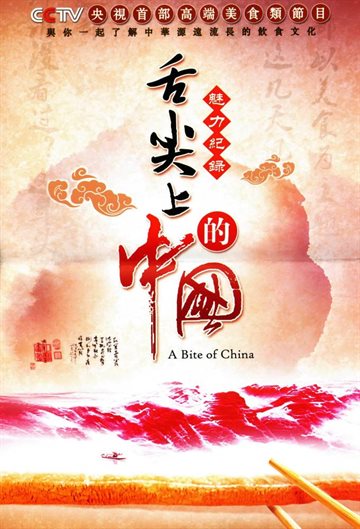舌尖上的中国第一季
China has some of the most dramatic natural landscapes in the world, with plateaus, forests, lakes, and coastlines. This geographical span facilitates the formation and preservation of species, and no single country has so many potential food raw materials. In order to obtain this natural gift, people gather, gather, dig, and fish. Across the four seasons, this episode will reveal the story of people and nature behind delicious food.
In Shangri-La, in the natural hybrid forest of pine and oak trees, Zhuoma was looking for a kind of food like a fairy - matsutake. The freshness period of matsutake is only a short two days, and the merchants process the matsutake delicately at the fastest speed, so that a matsutake will appear in the market in Tokyo after 24 hours.
At 3 a.m. in the matsutake production area, Shanzhen Zhuoma and her mother set off on a motorcycle driven by her father. After passing through the village, the mother and daughter had to walk into the virgin forest 30 kilometers away. The rain makes all kinds of wild mushrooms grow wildly, but every Tibetan has the insight to identify matsutake. After the matsutake was unearthed, Zhuoma immediately covered the fungus pit with pine needles on the ground. Only in this way can the mycelium not be destroyed. In order to continue the gift of nature, Tibetans carefully abide by the rules of the mountain forest.
During the two-month matsutake season, Zhuoma and her mother earned 5,000 yuan, which is a reward for their hard work.
Lao Bao is from Zhejiang. In his moso bamboo forest, the largest winter bamboo shoot in Suichang grew. The winter bamboo shoots are hidden under the soil layer. From the surface of the bamboo forest, there is nothing. Lao Bao only needs to look at the color of the leaves on the bamboo shoots to know the exact location of the bamboo shoots. It all depends on his rich experience.
The preservation of bamboo shoots has always been a big trouble. A bamboo shoot is just a bud, which is the most active part of the whole plant. Clever Laobao’s method of protecting winter bamboo shoots is very simple. Remove the loose soil, bury the bamboo shoots again, and keep them moisturized. This burial method uses nature on the spot and can keep fresh for more than two weeks.
Winter bamboo shoots can be seen in the four major cuisines of China. Chefs prefer it because the bamboo shoots are simple in material and can easily absorb the taste of matching food. Laobao is using winter bamboo shoots to make a homemade bamboo shoot soup. The protagonist of Xianduxian should be spring bamboo shoots, but Laobao uses Suichang winter bamboo shoots that are 20 times more expensive. Because in the eyes of Lao Bao, these are just a side dish in his own bamboo forest.
In the northern mountainous area of Dali, Yunnan, among the eye-catching red sandstone, there are many natural salt wells scattered. These salts make the special delicacy of the mountain people in Yunnan. Lao Huang and his son built a stove by the Shujiang stream. The job of the earthen stove every winter is to boil salt.
At the winter market in Yunlong County, Lao Huang and his son rushed to the market to pick pork for ham. The ham was cured in the yard of the old house. The curing process of Nuodeng ham is very simple. Lao Huang removes the excess skin and flesh, processes it into a round ham, sprinkles white wine to sterilize it, and then spreads the homemade Nuodeng salt evenly. , Pressure, so as not to damage the fiber.
Even if judged by modern standards, Nuodeng Well Salt is still the best table salt. Although the salt industry has ceased in this ancient salt-producing area, we still believe that Nuodeng Salt is a precious gift from nature to the mountain people. .
Shengwu and Maorong are two brothers. Every September, they come to Jiayu County in Hubei to dig a natural delicacy. This kind of plant grows in the deep silt under the lake. The root of the plant that Maorong dug is called lotus root, which is a high-yield vegetable in the lake - lotus root.
As professional lotus diggers, Mao Rong and Shengwu have to go out alone for 7 months every year. During the season of picking lotus roots, they rush from their hometown in Anhui to places where there are lotus roots. High wages make Shengwu and Maorong willing to do this hard work. People who dig lotus root like cold weather. This is not because cold weather makes it easier to dig lotus root, but because more people buy lotus root and eat lotus root soup in cold weather, and the price of lotus root will rise.
It will take 5 months to pick the lotus roots of the whole lake. On Zhenhu Lake in Jiayu County, 300 professional lotus diggers continue from sunrise to sunset every day. In a large province with freshwater lakes in China, this scene happens every year staged.
Today, when we have the right to stay away from nature and enjoy delicious food, we should be most grateful to these people who have achieved delicious food on the table through labor and wisdom.




















































